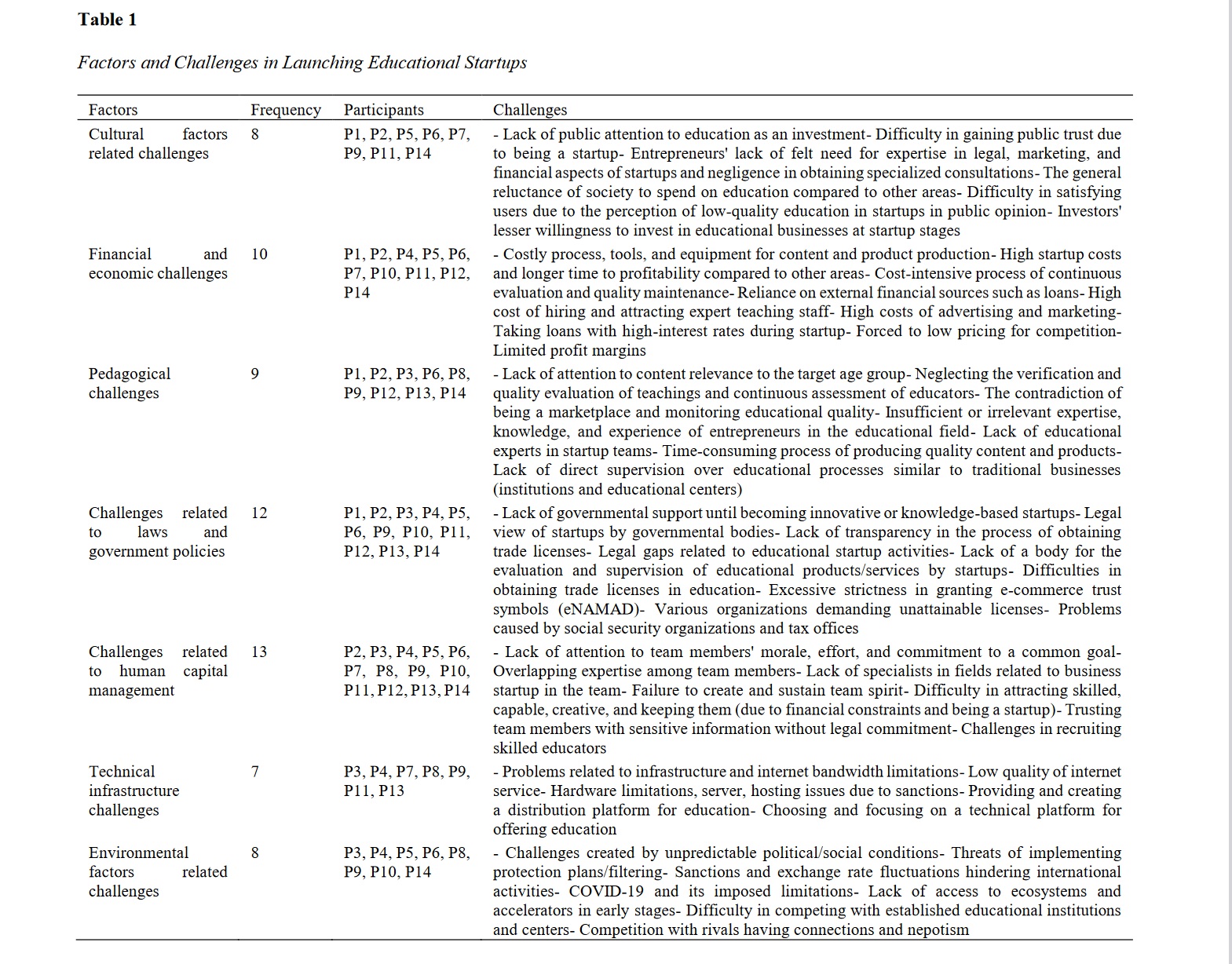Identifying the Obstacles and Challenges of Launching Startups in the Education Industry
Abstract
Objective: The present research aims to identify the obstacles and challenges encountered when launching startups in the education industry.
Methodology: This study employs an applied objective and, from the perspective of data collection, utilizes a qualitative approach with the implementation of descriptive phenomenological research methodology. The research field comprised 14 founders of successful educational startups, selected through purposeful sampling based on predefined criteria. Semi-structured interviews were conducted for data collection until theoretical saturation was achieved. The analysis of findings was performed using Colaizzi's seven-step strategy. The validity of the qualitative findings was confirmed using Lincoln & Guba's (1985) four criteria for judgment: credibility, transferability, confirmability/neutrality, and reliability/consistency, further validated by Krippendorff's alpha.
Findings: The analysis of findings led to the identification of 176 key phrases, which were then aggregated into 60 components and categorized, culminating in the identification of seven factors including challenges and obstacles related to cultural factors, financial and economic challenges, pedagogical challenges, challenges related to government laws and policies, human capital management challenges, technical infrastructure challenges, and environmental challenges.
Conclusion: In general, the results of this study can be a practical guide for founders of educational startups to anticipate the obstacles and challenges of launching their business; thus, they can prepare themselves to face possible obstacles, challenges, and problems, and with a managed and effective performance, they can reduce threats and turn them into opportunities. Additionally, the results of this study can be a roadmap for our country's policymakers and legislators to adopt better decisions and policies, as well as to reform cumbersome laws and regulations and facilitate the process of obtaining activity licenses and legal obligations, reducing and addressing the obstacles in launching educational startups.
Downloads

Downloads
Additional Files
Published
Issue
Section
License
Copyright (c) 2024 Maryam Mashayekhi , Khodayar Abili , Fatemeh Narenji Thani, Seyed Rasul Hosseini (Author)

This work is licensed under a Creative Commons Attribution-NonCommercial 4.0 International License.















